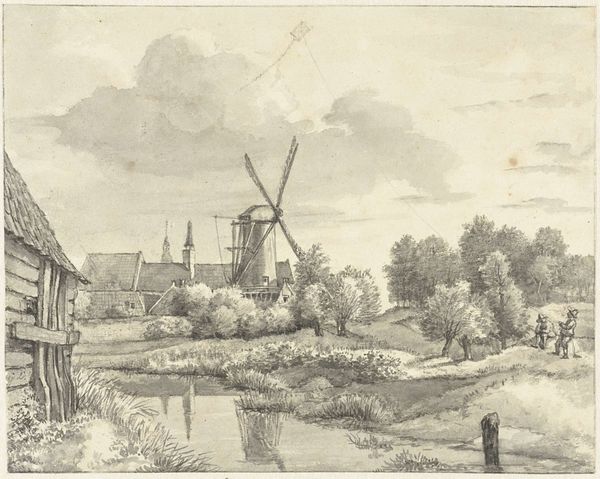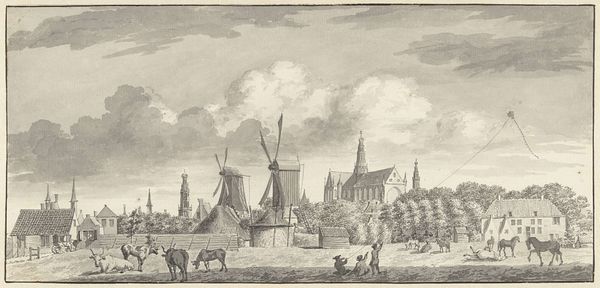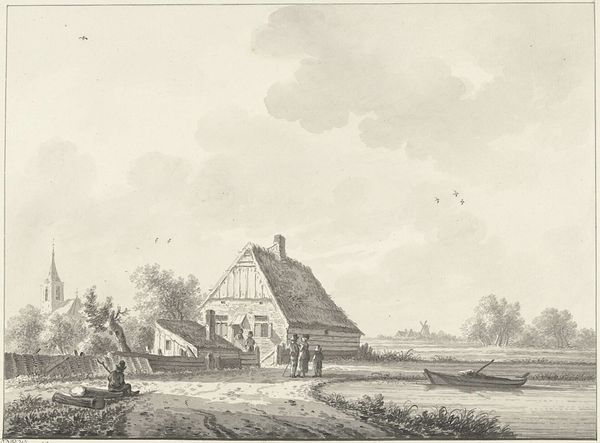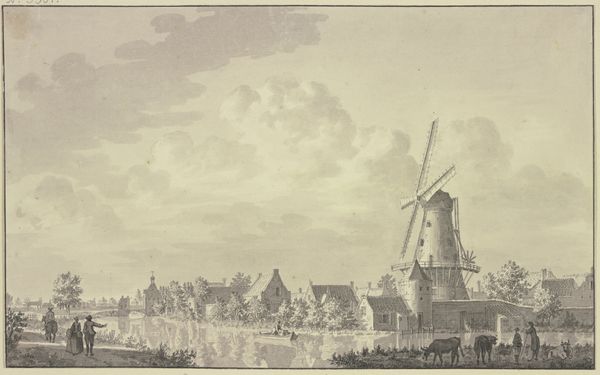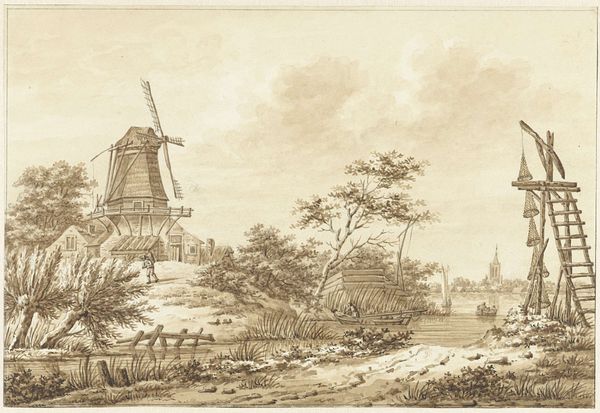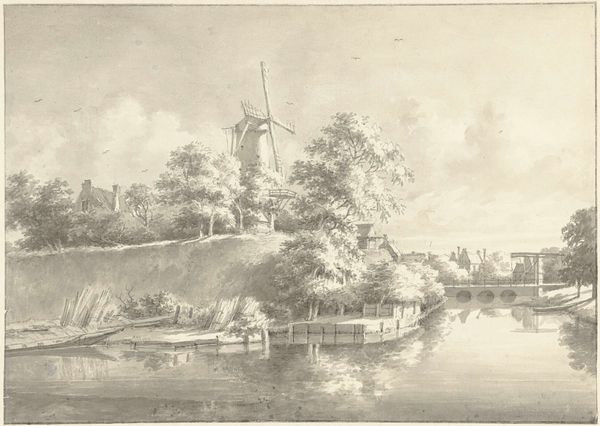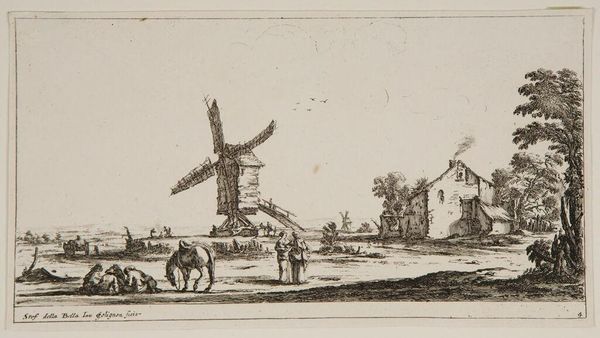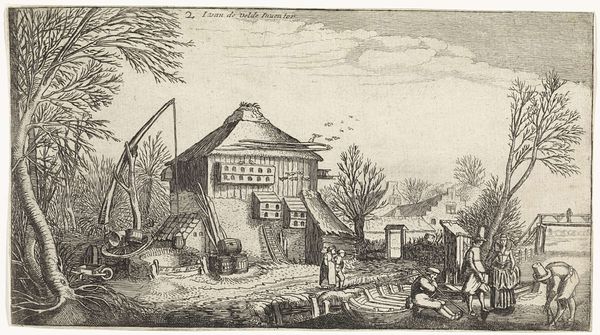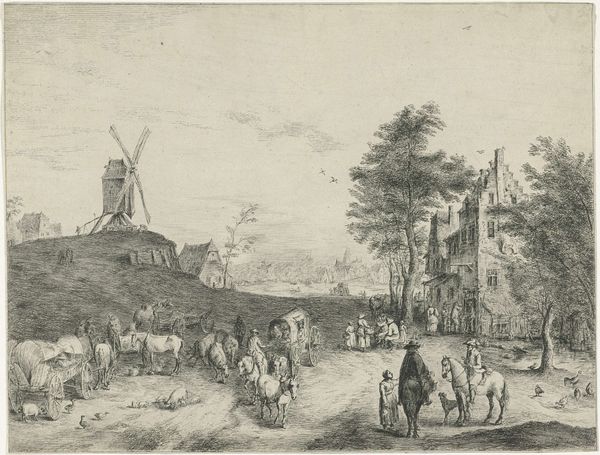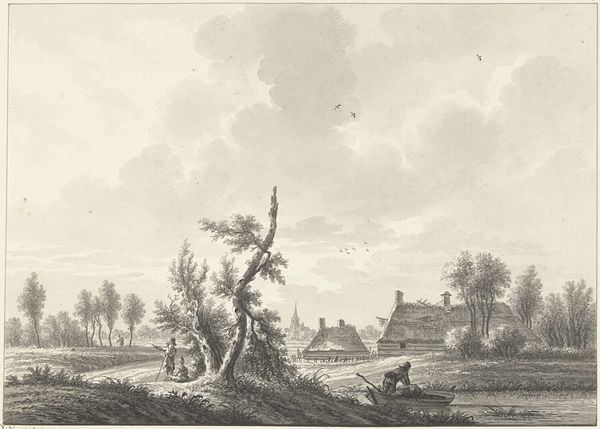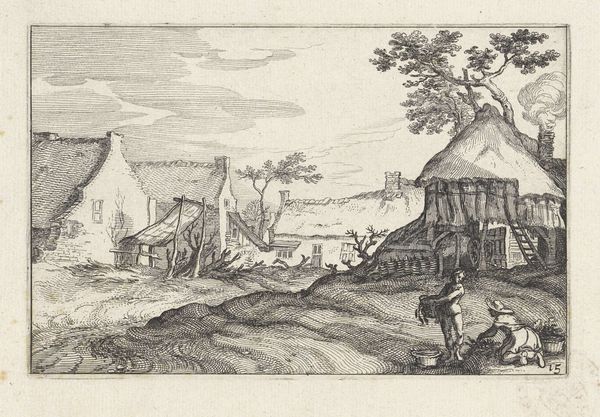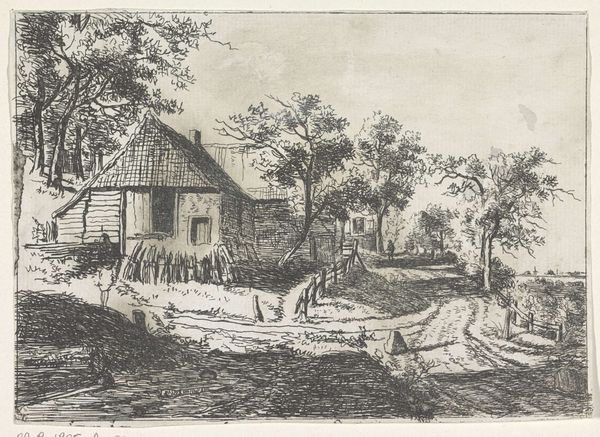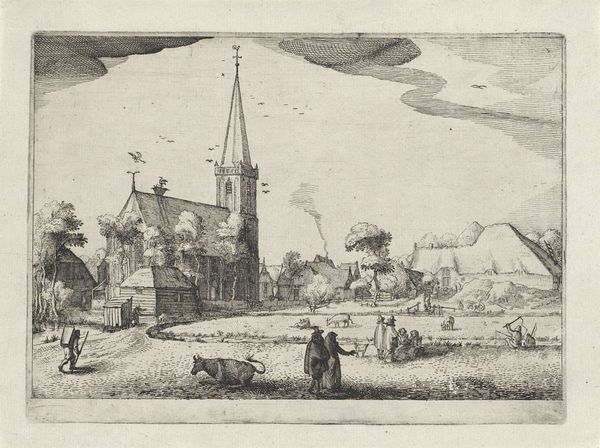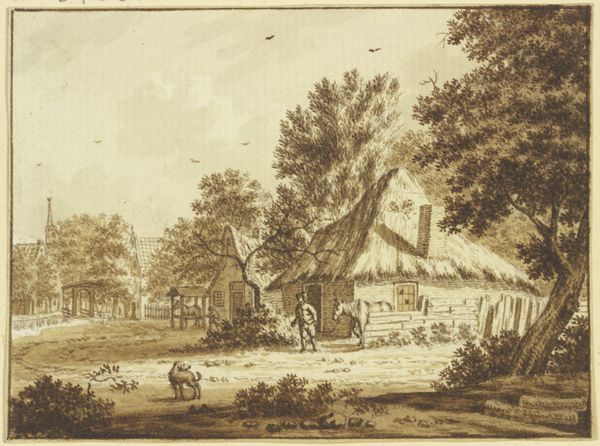
#
architectural sketch
#
landscape illustration sketch
#
quirky sketch
#
mechanical pen drawing
#
pen sketch
#
personal sketchbook
#
sketchwork
#
pen-ink sketch
#
pen work
#
initial sketch
Dimensions: height 170 mm, width 215 mm
Copyright: Rijks Museum: Open Domain
Jacob Ernst Marcus rendered this drawing, "Two Anglers by a Ditch," with pen in the early 19th century. At first glance, it presents a serene rural scene, but it also evokes an ancestral connection to the land. The windmill, standing prominently, is more than just a functional structure; it symbolizes human ingenuity harnessing natural forces. Windmills appear across eras, from medieval illustrations to Dutch Golden Age paintings, each time embodying a blend of progress and pastoral life. Like the ever-turning wheel of fortune, it evokes the cyclical nature of existence. Note the two figures fishing. Fishing as a motif stretches back to ancient Egyptian art, often representing sustenance, patience, and a deep connection with nature. The act of fishing, waiting, and hoping, is fraught with psychological tension, yet can also be deeply meditative, evoking a timeless human pursuit reflected in countless cultural narratives. These symbols persist, reformed, carrying ancestral memories into our present consciousness.
Comments
No comments
Be the first to comment and join the conversation on the ultimate creative platform.
